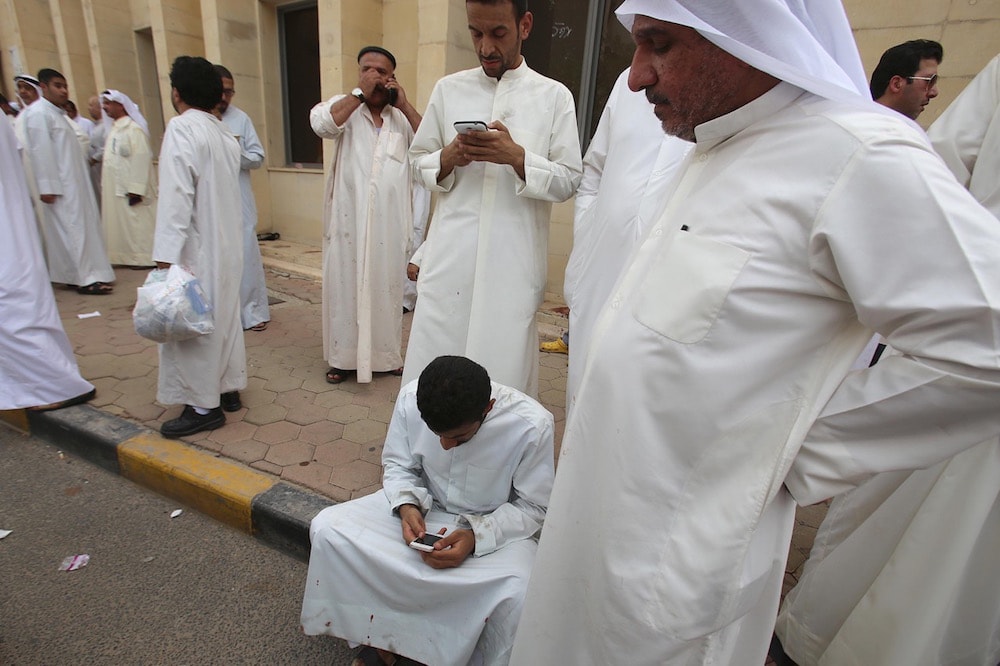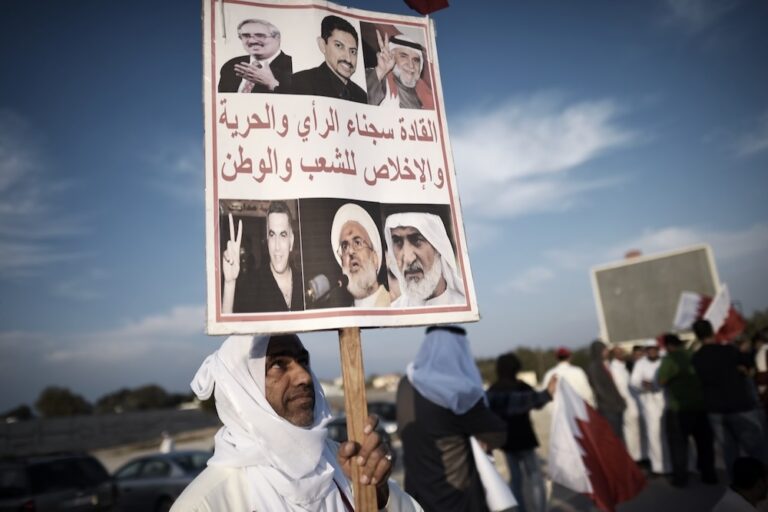A GCHR and ALQST submission to the UK media freedom inquiry addresses the status of digital rights, violations to freedom of expression and threats posed to journalists, rights defenders and online activists across the Middle East, while providing recommendations to remedy the situation.
This statement was originally published on gc4hr.org on 9 September 2019.
In August, the Gulf Centre for Human Rights (GCHR) and ALQST made a submission to the United Kingdom Foreign Affairs Committee, in response to a call for written evidence for the Foreign and Commonwealth Office (FCO) and global media freedom inquiry.
The submission, which was published by the Foreign Affairs Committee on 3 September, addresses threats to journalists, human rights defenders (HRDs) and online activists related to violations of freedom of expression, in eight countries in the Middle East – Syria, Saudi Arabia, Yemen, Bahrain, Iraq, the UAE, Oman, and Kuwait.
The submission is available here (in English only).
In the list of Recommendations, GCHR and ALQST express deep concern for the protection of journalists, HRDs and online activists in the Gulf and neighbouring countries in light of everything set out above. We have particular concern for the status of digital rights. We further believe that because of the close engagement between the UK and Middle Eastern countries, based not only on the previous colonial relationship but also on the current trading relationship, particularly the arms trade, the UK has a responsibility to support those who accept risk in order to express free opinions in a way that liberal democracies such as the UK claim to celebrate and hold dear. The UK has a responsibility to promote free media in the Middle East.
Therefore, we recommend:
1. To the UK government:
● Provide support for projects and initiatives to reopen independent newspapers online, including expert technical and financial support, and digital security training;
● Press counterparts in the Gulf regions to:
- Repeal repressive articles in cybercrime laws, press and media laws and the penal code which are used to prosecute the exercise of digital rights and freedom of press;
- Rescind prison sentences for the exercise of digital rights by HRDs, bloggers, journalists and netizens critical of corruption, violations of human rights and wars;
- Refrain from imposing any form of network disruption, in order to protect human rights, especially in conflict-torn regions.
2. To Internet Service Providers (ISPs) everywhere:
● Develop a code of conduct and consumer protection regulations that observes human rights in business and does not infringe upon netizens’ digital rights.
3. To all States:
We reiterate the recommendations made in June 2019 at the Global Media Freedom Conference by 36 NGOs calling on all States to:
● Publicly condemn acts of violence against journalists and media freedom violations whenever they occur online or offline and ensure impartial, thorough, independent, effective and transparent investigations into all such incidents;
● Immediately and unconditionally release all journalists imprisoned for their work. Set up national multi-stakeholder expert panels to review all legislation that can be used to harass, imprison, or otherwise target journalists, and bring legislation in line with international freedom of expression standards, including by providing effective safeguards against abuse;
● Investigate all murders of journalists and media workers. Ensure that investigations are sufficiently and effectively resourced, timely, and re-opened if necessary. The aim should be to substantially increase the percentage of prosecution of all those responsible for the murders of journalists and media workers;
● Refrain from targeting and denigrating the media, online or offline;
● Adopt and fund the proposal made by the UN Special Rapporteur on Extrajudicial Killings to reinforce the capacity of the UN to investigate violence against journalists by establishing a standing instrument for the investigation of violent crimes against journalists and media workers targeted for their work;
● Ensure that all media workers, including news gatherers, freelance reporters, citizen journalists, fixers, field producers, translators, and drivers, are included in any initiatives for the protection of journalists;
● Provide visas to journalists at risk to enable them to participate in safety training, and provide asylum when appropriate;
● Ban the export, sale, transfer, use, or servicing of privately developed surveillance tools, often used to target journalists, and facilitate the export and import of personal protective equipment (PPE) without military authorization;
● Expedite the implementation of effective access to information laws and practices, as agreed in target 16.10 of the Sustainable Development Goals, including by providing adequate funding and technological support and resourcing independent oversight;
● Commit to transparently expediting implementation of the UN Plan of Action on the Safety of Journalists and the Issue of Impunity, including through the establishment of effective national safety mechanisms and a stronger, more robust, accountable, and accessible political coordination of focal points in relevant U.N. agencies and programs;
● Support and sustain the work of the media community, civil society, and academia in the promotion and protection of media freedom, the safety of journalists, the financial and economic sustainability of media, an enabling and pluralistic media environment, and access to information, especially in time of digital disruptions.



